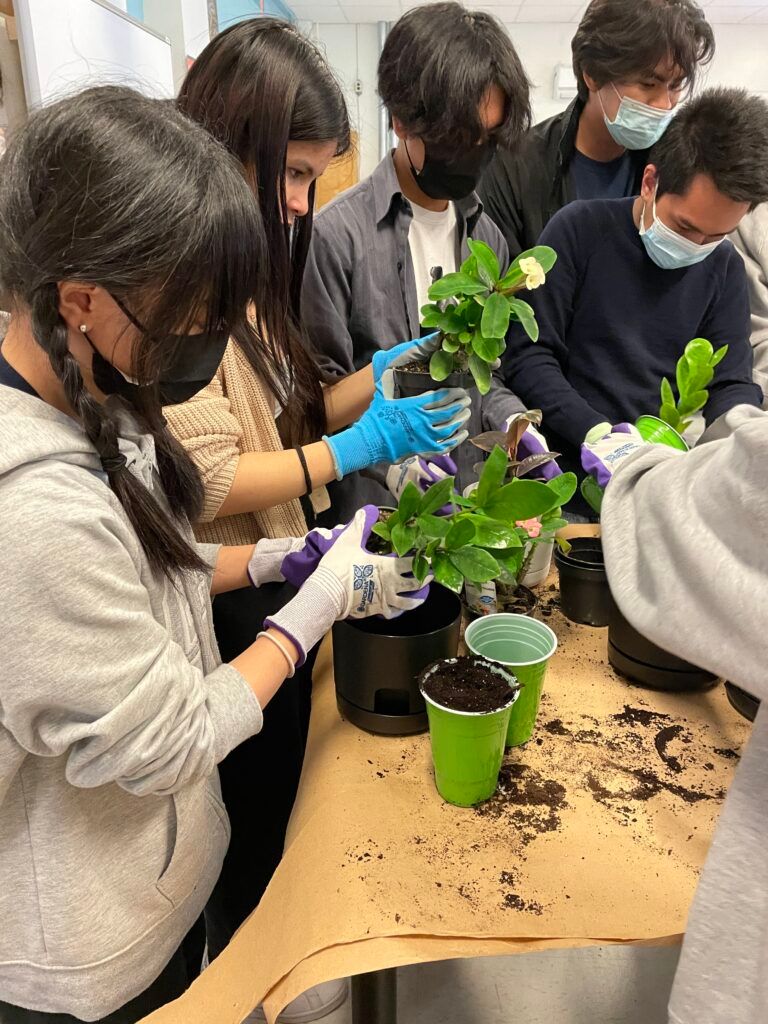EdTech solutions can play a significant role in promoting greener education by reducing paper usage, minimizing carbon emissions from transportation, and fostering environmental awareness among students.
If you want to can find out more about environmental and climate change education - check out the "Teaching Green" category on our E-Teach Forum. Click here
Here is some inspiration for you and some ideas of EdTech tools that can be used for greener education:
 Digital Textbooks and E-books: Replace traditional paper textbooks with digital versions accessible on tablets, laptops, or e-readers. Digital textbooks not only reduce paper waste but also provide interactive features such as multimedia content, annotations, and search capabilities, enhancing the learning experience.
Digital Textbooks and E-books: Replace traditional paper textbooks with digital versions accessible on tablets, laptops, or e-readers. Digital textbooks not only reduce paper waste but also provide interactive features such as multimedia content, annotations, and search capabilities, enhancing the learning experience.
 Online Learning Platforms: Utilize online learning platforms like Google Classroom, Moodle, or Edmodo to distribute course materials, assignments, and assessments digitally. These platforms enable paperless communication, collaboration, and grading, reducing the need for printed materials and streamlining administrative tasks.
Online Learning Platforms: Utilize online learning platforms like Google Classroom, Moodle, or Edmodo to distribute course materials, assignments, and assessments digitally. These platforms enable paperless communication, collaboration, and grading, reducing the need for printed materials and streamlining administrative tasks.
 Virtual Field Trips: Instead of physical field trips that require transportation and produce carbon emissions, leverage virtual reality (VR) or augmented reality (AR) technologies to take students on immersive virtual field trips. Virtual field trips allow students to explore ecosystems, historical landmarks, or cultural sites from the comfort of the classroom, minimizing environmental impact.
Virtual Field Trips: Instead of physical field trips that require transportation and produce carbon emissions, leverage virtual reality (VR) or augmented reality (AR) technologies to take students on immersive virtual field trips. Virtual field trips allow students to explore ecosystems, historical landmarks, or cultural sites from the comfort of the classroom, minimizing environmental impact.
 Remote Learning and Teleconferencing: Embrace remote learning technologies such as video conferencing tools (e.g., Zoom, Microsoft Teams) to conduct virtual classes, meetings, and collaborative projects. Remote learning reduces the need for commuting, saving time, fuel, and reducing greenhouse gas emissions associated with transportation.
Remote Learning and Teleconferencing: Embrace remote learning technologies such as video conferencing tools (e.g., Zoom, Microsoft Teams) to conduct virtual classes, meetings, and collaborative projects. Remote learning reduces the need for commuting, saving time, fuel, and reducing greenhouse gas emissions associated with transportation.
 Environmental Education Apps: Integrate environmental education apps and digital resources into the curriculum to raise awareness about sustainability, climate change, and conservation. Apps like EcoChallenge, iNaturalist, or Earth Rangers provide educational content, interactive activities, and citizen science projects that empower students to take action for the environment.
Environmental Education Apps: Integrate environmental education apps and digital resources into the curriculum to raise awareness about sustainability, climate change, and conservation. Apps like EcoChallenge, iNaturalist, or Earth Rangers provide educational content, interactive activities, and citizen science projects that empower students to take action for the environment.
 Green STEM Projects: Engage students in green STEM (science, technology, engineering, and mathematics) projects that focus on solving real-world environmental challenges. Use EdTech tools such as data loggers, sensors, and simulation software to conduct experiments, analyze environmental data, and design sustainable solutions.
Green STEM Projects: Engage students in green STEM (science, technology, engineering, and mathematics) projects that focus on solving real-world environmental challenges. Use EdTech tools such as data loggers, sensors, and simulation software to conduct experiments, analyze environmental data, and design sustainable solutions.
 Online Environmental Simulations: Utilize online environmental simulations and modeling tools to explore complex ecological systems and environmental phenomena. Platforms like EcoSim or Climate Interactive offer interactive simulations that allow students to experiment with different scenarios, understand cause-and-effect relationships, and explore solutions to environmental issues.
Online Environmental Simulations: Utilize online environmental simulations and modeling tools to explore complex ecological systems and environmental phenomena. Platforms like EcoSim or Climate Interactive offer interactive simulations that allow students to experiment with different scenarios, understand cause-and-effect relationships, and explore solutions to environmental issues.
 Energy Monitoring Systems: Install energy monitoring systems in school buildings to track and analyze energy consumption in real-time. Use EdTech platforms to visualize energy data, identify inefficiencies, and implement energy-saving strategies. Students can learn about energy conservation and sustainability through hands-on monitoring and analysis.
Energy Monitoring Systems: Install energy monitoring systems in school buildings to track and analyze energy consumption in real-time. Use EdTech platforms to visualize energy data, identify inefficiencies, and implement energy-saving strategies. Students can learn about energy conservation and sustainability through hands-on monitoring and analysis.
 Digital Collaboration and Project-Based Learning: Encourage digital collaboration and project-based learning activities that promote teamwork, critical thinking, and problem-solving skills. Use online collaboration tools like Google Docs, Padlet, or Trello to facilitate group projects, discussions, and peer feedback, fostering a culture of collaboration and innovation.
Digital Collaboration and Project-Based Learning: Encourage digital collaboration and project-based learning activities that promote teamwork, critical thinking, and problem-solving skills. Use online collaboration tools like Google Docs, Padlet, or Trello to facilitate group projects, discussions, and peer feedback, fostering a culture of collaboration and innovation.
Do you already use anything of these tools? Or do you have more tools to add? What is your favorite tool and why?
 
 

 for environmental projects
for environmental projects